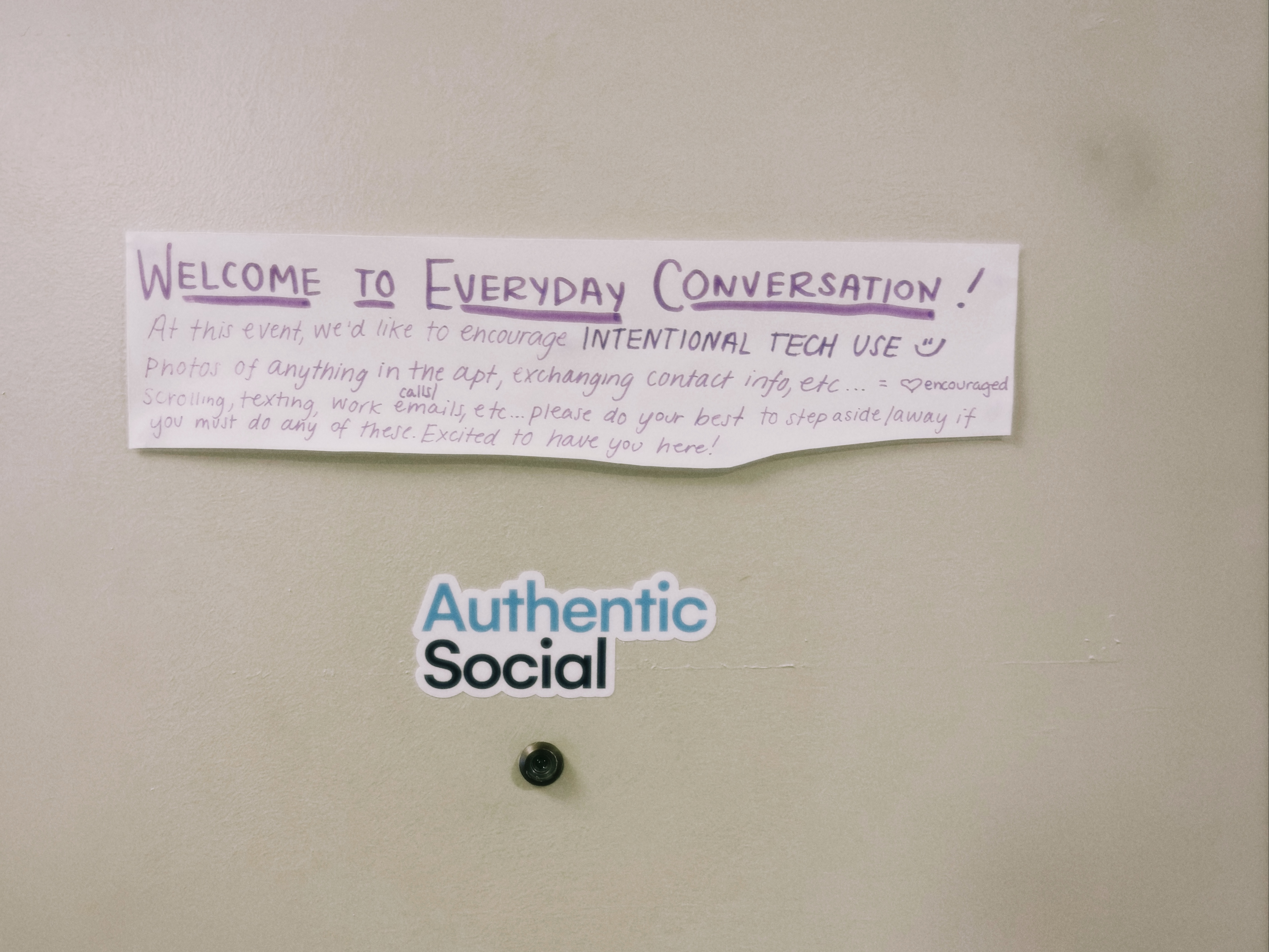Everyday Conversation
A PARTICULAR SITUATION AND ITS CONSTRUCTION INFLUENCE BEHAVIOR FAR MORE THAN PREDETERMINED ACTION
My name is Caitlin Begg and I am the Founder of Authentic Social and a Sociological Researcher, focused on technology’s effect on conversation. Below you can find updates on my research and publications.
Google Scholar | ORCID | ResearchGate
ABOUT EVERYDAY CONVERSATION
For research updates, click here
I’ve been conducting independent sociological research since March of 2022, with a focus in technology’s effect on conversation and sociotechnical systems. Within these contexts, some areas of focus include asynchronous communication and hypercommunication; the future of work; artificial intelligence’s impact on conversation; and youth and wellbeing. Research presented at academic and industry conferences across the United States and Europe since May 2023. I integrate my research into processes and methods for Authentic Social, and this research is done in addition to my core role as Founder. For more on my research, listen to my recent podcast feature (MindBodySpace) here.
--
Technology's effect on social systems begins with its impact on conversation. Digital communication often leads to difficulty in interpreting tones and intentions as compared to in-person conversation (Begg 2016).
Using a year of in-depth theoretical research and survey data, I analyze the effect of asynchronous communication and hypercommunication on sociotechnical systems and daily interaction.
The theoretical component of this work centers around both American and French sociological texts from the 1940s to 2020s, mainly within three categories: everyday life and its alienation under capitalism; conversation trends over time viewed through a sociotechnical lens; and community building viewed through a symbolic interactionist lens.
Findings thus far link changes in conversation patterns to the alienation of everyday life under technocapitalism, and I theorize that a lack of unmediated experiences in everyday life prevents meaningful connection through conversation in its traditional form.
This experiential deficit can lead to negative effects in personal and professional relationships, as well as to a large-scale erosion of community and collective solidarity.
The internet, social media, and cell phones play a large part in this crisis of community present in modern-day communication, although I theorize that détournement of everyday communication at scale could change this.
This research seeks not only to expand upon conversation and technology theories, but also to leverage qualitative data to provide a potential blueprint for increasing satisfaction and alignment in sociotechnical systems and everyday conversation-in part through what I refer to as "progression to analog".



